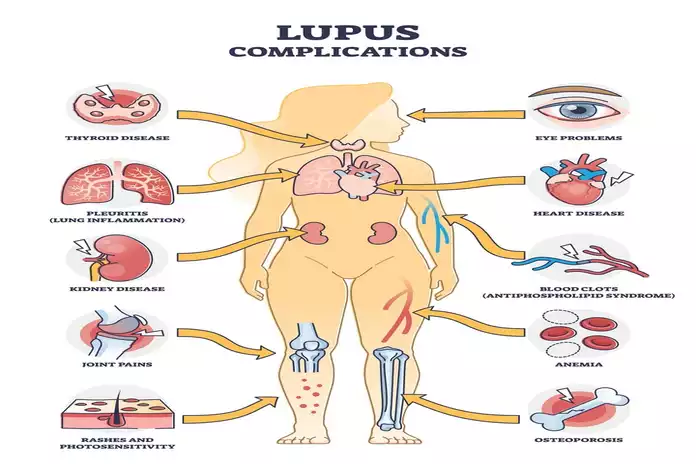What Is The Most Common Complication of Lupus?

The complications of lupus can vary depending on the severity and extent of the disease, as well as the organs and systems affected. Some common complications of lupus include: (5)
- Kidney damage: Lupus can cause inflammation in the kidneys, leading to a condition called lupus nephritis. This can cause permanent kidney damage, and may require dialysis or a kidney transplant.
- Cardiovascular disease: People with lupus are at increased risk for heart attack and stroke due to inflammation of the blood vessels and the buildup of plaque in the arteries.
- Lung damage: Lupus can cause inflammation in the lungs, leading to conditions such as pleurisy, pneumonitis, or pulmonary hypertension.
- Central nervous system (CNS) complications: Lupus can cause inflammation in the brain and nervous system, leading to symptoms such as seizures, psychosis, or cognitive impairment.
- Infections: People with lupus are at increased risk for infections due to the immune system dysfunction as well as the use of immunosuppressive medications to manage symptoms.
- Pregnancy complications: Women with lupus are at increased risk for complications during pregnancy, such as miscarriage, preterm birth, or preeclampsia.
- Osteoporosis: Lupus and the use of steroids to manage symptoms can lead to bone loss and osteoporosis, which increases the risk of fractures.
- Increased risk of cancer: People with lupus are at increased risk for certain types of cancer, such as lymphoma and non-melanoma skin cancer.
- Depression and anxiety: Lupus can cause emotional and psychological stress, which can lead to depression and anxiety.
It’s important for people with lupus to work closely with their healthcare providers to manage their symptoms and prevent complications. Regular medical checkups and screenings can help detect potential complications early and allow for prompt treatment.

